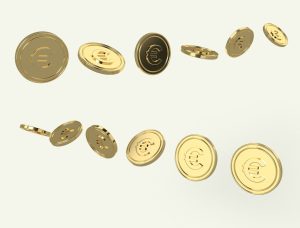The foreign exchange market, or forex market, is the largest and most liquid financial market in the world. It is estimated that the daily trading volume of the forex market is approximately $5.3 trillion. The forex market is a decentralized market, meaning that it does not have a physical exchange. Instead, it operates through a network of banks, financial institutions, and retail forex brokers. The big banks play a significant role in the forex market and can move price action through various mechanisms.
One of the primary ways in which big banks move price action in the forex market is through their trading desks. Trading desks are responsible for executing trades on behalf of the bank’s clients, and they also engage in proprietary trading. Proprietary trading refers to trading activities that are carried out by the bank using its own funds. Trading desks have access to significant amounts of capital, and they can deploy this capital to move price action in the forex market.
Big banks also have access to information that is not available to the general public. They have teams of analysts who monitor economic indicators and global events that could impact currency prices. This information is used to make informed trading decisions, and the bank’s trading desk can use this information to buy or sell currencies, which can move price action in the forex market.
Another way in which big banks move price action in the forex market is through their market-making activities. Market-making refers to the process of providing liquidity to the market by buying and selling currencies at the bid and ask prices. Big banks are some of the largest market-makers in the forex market, and they can use their market-making activities to influence currency prices.
For example, suppose a big bank sees that there is a high demand for euros. In that case, the bank can increase the bid price for euros, which will make it more expensive for other market participants to buy euros. This increased demand and higher price can cause the value of the euro to increase. Similarly, if the bank sees that there is a high supply of euros, it can decrease the bid price for euros, which will make it cheaper for other market participants to buy euros. This increased supply and lower price can cause the value of the euro to decrease.
Big banks can also move price action in the forex market by engaging in coordinated trading activities. Coordinated trading refers to the practice of multiple banks working together to buy or sell currencies simultaneously. This can be done to achieve a common goal, such as manipulating currency prices or taking advantage of market inefficiencies.
For example, suppose multiple big banks decide to buy euros simultaneously. In that case, the increased demand for euros can cause the value of the euro to increase. This can be particularly effective if the banks involved in the coordinated trading have significant market power and can deploy large amounts of capital.
In conclusion, big banks play a significant role in the forex market and can move price action through various mechanisms. They can use their trading desks to deploy significant amounts of capital, access to information that is not available to the general public, market-making activities, and coordinated trading activities. As a retail forex trader, it is essential to understand the role of big banks in the forex market and how they can impact currency prices. By doing so, traders can make informed trading decisions and manage their risk effectively.






